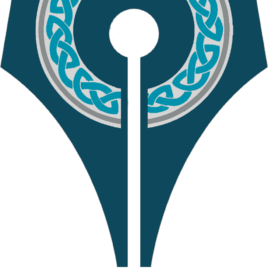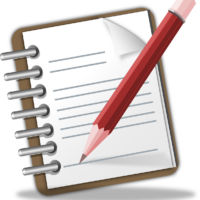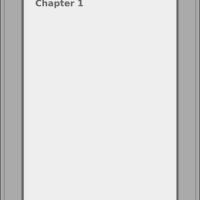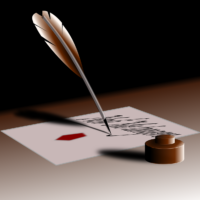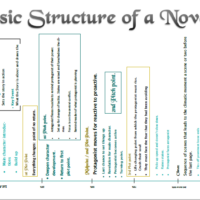by | Jan 4, 2017 | Blog, Reading List
During my studies, with the Open University, as much as I enjoyed the set materials (well most of them) I was not happy that I did not have much time to read for my own enjoyment. I was also finding myself limited to only part reading books I was enjoying due to time constraints of studying while looking after three small kids. Unfinished books are marked with an ‘*‘. I have decided to put together a reading list of the twelve books (some are really big) I want to read or finish reading this year.
For this reason, I have decided to put together a reading list of the twelve books (some are really big) I want to read or finish reading this year, and I have scheduled time for my own reading in my calendar. I have included blurbs and links so if you fancy any yourself you can find them quickly (all links are kindle UK). You might notice a bit of a theme. I don’t intend to read them in any particular order (apart from the first one which is due today and I am champing at the bit to start). Oh, and you might notice a bit of a theme.
– Neil Oliver –
The Vikings famously took no prisoners, relished cruel retribution, and prided themselves on their blood-thirsty skills as warriors. But their prowess in battle is only a small part of their story, which stretches from their Scandinavian origins to America in the west and as far as Baghdad in the east.
As the Vikings did not write their history, we have to discover it for ourselves, and that discovery, as Neil Oliver reveals, tells an extraordinary story of a people who, from the brink of destruction, reached a quarter of the way around the globe and built an empire that lasted nearly 200 years.
Drawing on the latest discoveries that have only recently come to light, Neil Oliver goes on the trail of the real Vikings. Where did they emerge from? How did they really live? And just what drove them to embark on such extraordinary voyages of discovery over 1000 years ago? VIKINGS will explore many of these questions for the first time in an epic story of one of the world’s great empires of conquest.
– Lars Brownworth –
In AD 793 Norse warriors struck the English isle of Lindisfarne and laid waste to it. Wave after wave of Norse ‘sea-wolves’ followed in search of plunder, land, or a glorious death in battle. Much of the British Isles fell before their swords, and the continental capitals of Paris and Aachen were sacked in turn. Turning east, they swept down the uncharted rivers of central Europe, captured Kiev and clashed with mighty Constantinople, the capital of the Byzantine Empire.
But there is more to the Viking story than brute force. They were makers of law – the term itself comes from an Old Norse word – and they introduced a novel form of trial by jury to England. They were also sophisticated merchants and explorers who settled Iceland, founded Dublin, and established a trading network that stretched from Baghdad to the coast of North America.
In The Sea Wolves, Lars Brownworth brings to life this extraordinary Norse world of epic poets, heroes, and travellers through the stories of the great Viking figures. Among others, Leif the Lucky who discovered a new world, Ragnar Lodbrok the scourge of France, Eric Bloodaxe who ruled in York, and the crafty Harald Hardrada illuminate the saga of the Viking age – a time which “has passed away, and grown dark under the cover of night”.
– Lars Brownworth –
There is much more to the Norman story than the Battle of Hastings. These descendants of the Vikings who settled in France, England, and Italy – but were not strictly French, English, or Italian – played a large role in creating the modern world. They were the success story of the Middle Ages; a footloose band of individual adventurers who transformed the face of medieval Europe. During the course of two centuries they launched a series of extraordinary conquests, carving out kingdoms from the North Sea to the North African coast.
In The Normans, author Lars Brownworth follows their story, from the first shock of a Viking raid on an Irish monastery to the exile of the last Norman Prince of Antioch. In the process he brings to vivid life the Norman tapestry’s rich cast of characters: figures like Rollo the Walker, William Iron-Arm, Tancred the Monkey King, and Robert Guiscard. It presents a fascinating glimpse of a time when a group of restless adventurers had the world at their fingertips.
– Jesse Byock –
Medieval Iceland was unique amongst Western Europe, with no foreign policy, no defence forces, no king, no lords, no peasants and few battles. It should have been a utopia yet its literature is dominated by brutality and killing. The reasons for this, argues Jesse Byock, lie in the underlying structures and cultural codes of the islands’ social order. ‘Viking Age Iceland’ is an engaging, multi-disciplinary work bringing together findings in anthropology and ethnography interwoven with historical fact and masterful insights into the popular Icelandic sagas, this is a brilliant reconstruction of the inner workings of a unique and intriguing society.
– Bernard Cornwell –
Uhtred is an English boy, born into the aristocracy of ninth-century Northumbria. Orphaned at ten, he is captured and adopted by a Dane and taught the Viking ways. Yet Uhtred’s fate is indissolubly bound up with Alfred, King of Wessex, who rules over the only English kingdom to survive the Danish assault.
The struggle between the English and the Danes and the strife between christianity and paganism is the background to Uhtred’s growing up. He is left uncertain of his loyalties but a slaughter in a winter dawn propels him to the English side and he will become a man just as the Danes launch their fiercest attack yet on Alfred’s kingdom. Marriage ties him further still to the West Saxon cause but when his wife and child vanish in the chaos of the Danish invasion, Uhtred is driven to face the greatest of the Viking chieftains in a battle beside the sea. There, in the horror of the shield-wall, he discovers his true allegiance.
The Last Kingdom, like most of Bernard Cornwell’s books, is firmly based on true history. It is the first novel of a series that will tell the tale of Alfred the Great and his descendants and of the enemies they faced, Viking warriors like Ivar the Boneless and his feared brother, Ubba. Against their lives Bernard Cornwell has woven a story of divided loyalties, reluctant love and desperate heroism. In Uhtred, he has created one of his most interesting and heroic characters and in The Last Kingdom one of his most powerful and passionate novels.
– Bernard Cornwell –
When peace is torn apart by bloody Danish steel, Uhtred must fight to save a king who distrusts him.
Skeptical of a treaty between the Vikings and Wessex, Uhtred takes his talent for mayhem to Cornwall, gaining treasure and a mysterious woman on the way. But when he is accused of massacring Christians, he finds lies can be as deadly as steel.
Still, when pious King Alfred flees to a watery refuge, it is the pagan warrior he relies on. Now Uhtred must fight a battle which will shape history – and confront the Viking with the banner of the white horse …
Uhtred of Bebbanburg’s mind is as sharp as his sword. A thorn in the side of the priests and nobles who shape his fate, this Saxon raised by Vikings is torn between the life he loves and those he has sworn to serve.
– Antony Beevor –
A magisterial, single-volume history of the greatest conflict the world has ever known by our foremost military historian.
The Second World War began in August 1939 on the edge of Manchuria and ended there exactly six years later with the Soviet invasion of northern China. The war in Europe appeared completely divorced from the war in the Pacific and China, and yet events on opposite sides of the world had profound effects. Using the most up-to-date scholarship and research, Beevor assembles the whole picture in a gripping narrative that extends from the North Atlantic to the South Pacific and from the snowbound steppe to the North African Desert.
Although filling the broadest canvas on a heroic scale, Beevor’s THE SECOND WORLD WAR never loses sight of the fate of the ordinary soldiers and civilians whose lives were crushed by the titanic forces unleashed in this, the most terrible war in history.
My copy is a paperback which is almost A4 and about three inches thick. It could take a while to finish this cover to cover.
– Kate Williams –
The first novel in Kate Williams’ groundbreaking new historical series which begins in the First World War. For fans of BIRDSONG and DOWNTON ABBEY.
In the idyllic early summer of 1914, life is good for the de Witt family. German Rudolf and his aristocratic English wife Verena are planning the wedding of their daughter, Emmeline, while their eldest son Arthur is studying in Paris and Michael is just back from his first term at Cambridge. Celia, the youngest of the de Witt children, is on the brink of adulthood, and secretly dreams of escaping her carefully mapped out future and exploring the world.
But with the onslaught of war, the de Witts find themselves in danger of losing everything they hold dear. As Celia struggles to make sense of the changing world around her, she lies about her age to join the war effort and finds herself embroiled in a complex plot that puts her and those she loves in danger.
With gripping detail and brilliant empathy, Kate Williams tells the story of Celia and her family as they are shunned by a society that previously embraced them, torn apart by sorrow, and buffeted and changed by the storms of war.
– Terry Pratchett –
On the day the world ends . . .
. . . Mau is on his way home from the Boys’ Island. Soon he will be a man. And then the wave comes – a huge wave, dragging black night behind it and bringing a schooner which sails over and through the island rainforest. The village has gone. The Nation as it was has gone. Now there’s just Mau, who wears barely anything, a trouserman girl who wears far too much, and an awful lot of big misunderstandings . . .
Wise, witty and filled with Terry Pratchett’s inimitable comic satire, this is a terrific adventure that – quite literally – turns the world upside down.
– Anne McCaffrey –
From Book 1-3: They were people whose gifts were unique. For years – centuries – they had not even understood just what they could do with their minds. They had sometimes become astrologers, clairvoyants, or healers, but their Talents were undeveloped and untrained. Henry Darrow was the first to explore the huge wealth of psychic gifts hidden amongst mankind, and it was he who formed the first Parapsychic Centre where Talents could train and be used to revolutionise the world. But their powers set them apart, made them feared, then threatened by the un-Talented. And when dangerous freak ‘wild’ Talents began to wreak havoc in the outside world, it took all their combined Talented efforts to save themselves.
(Okay, it’s three, but I read the Brain Ship, and Crystal Singer Series’ years ago and I love them)
– Anne McCaffrey –
The first book in the Tower and the Hive sequence
The Talents were the elite of the Nine Star League. Their gifts were many and varied, ranging from the gently telepathic, to the rare and extremely valued Primes. On the Primes rested the entire economic wealth and communications systems of the civilised worlds. But Primes were scarce – only very rarely was a new one born. And now, on the planet Altair, in a small mining colony on the western mountain range, a new Prime existed, a three-year-old girl – trapped in a giant mud slide that had wiped out the rest of the Rowan mining community. Every Altarian who was even mildly talented could ‘hear’ the child crying for help, but no one knew where she was buried. Every resource on the planet was centred into finding ‘The Rowan’ – the new Prime, the first ever to be born on Altair, an exceptionally unique Prime, more talented, more powerful, more agoraphobic, more lonely, than any other Prime yet known in the Nine Star league
– Orson Scott Card –
Jason Worthing was a telepath, and the best of the ark captains sent to conquer and seed humankind anew on a hundred new worlds.
He vowed that his new-world would be different from the stagnant one he had fled. He established his colonists and his descendants; and when he was sure that they would survive, he sealed himself in the last somec chamber in all the galaxy, triggered to awaken him when his world had built a new civilization.
Call to action
- What are your top 12 (or more) books that you want to read or finish this year?
- Keep a record and see how many you actually get through.
by | Dec 29, 2016 | Blog
Two more days left of 2016, and it has been quite an eventful year. In the latter half of this year, I not only finished my degree but have taken a somewhat, though not wholly, unexpected turn in my plans, career wise. It’s also about this time of year where I give myself a self-audit regarding where I am, where I want to be and how I plan to get there. Don’t worry I am not going to drop everything and start backpacking around Asia or something. Travelling is simply not feasible…yet. The other reason is that I would rather spend the money on my kit for Viking re-enactment.
I knew from the age of around 15 that I wanted to do something involving writing. Sadly, I allowed my parents and teachers discourage me. To cut a long boring story short, I am getting another crack at the whip. When I began my studies in February of 2011, I had my heart set on teaching History in a classroom setting. I got keener as I progressed but in the last year or so I have been considering my Plan B options: Open University grading policy has meant that my results were not what I needed them to be to get on to any of the training courses. I had certainly not seen myself as a self-employed Freelancer I cannot say that it wasn’t a disappointment because the same results from a ‘brick’ university would have got me a 2:1 or even a first, but what’s done is done. I still managed it while looking after 3 kids, so yay me. I am sure my sleep patterns will recover soon, and this (theoretically) lets me off taking my maths GCSE. Again (shudder). That said, I am thinking of taking it anyway just so I have that apparently necessary C that I have managed quite happily without for the last 16 years. I am yet to find a practical use, in my field, for knowing how to calculate the area of a circle.
A suggestion from a fellow editor made me give editing and proofreading a go and I am glad I took him up on his advice. I love it and have since set myself up as a freelancer. This means I have the freedom to set my own hours. It has also taught me that I not only need to learn when to stop working and think about something else for a while but actually do it. Looks like I have a New Year’s resolution to keep for next year. I am feeling extremely positive about this new direction. It’s a teaching role (of sorts), just the one I was expecting and I will get to use all my skills.
NaNoWriMo was an eye-opener, to say the least. I gave it a good shot, but I then ended up with a beta-read that I couldn’t turn down. Next year I’m going to make sure I schedule enough time to do my own writing. I have an idea lined up but I have a strict ‘no spoilers’ rule. It will give me plenty of time to finish the first draft of this month’s, edit and get it ready for publishing. I’m really excited about this too. NaNoWriMo gave me the boot up the bum to make a real start on it. The Densewords ‘Readworthy Fiction’ course (available via Udemy) is also proving to be a massive help where printed writers’ guides were not. I would recommend it to any author.
Finally, 2017 will be the year I get my driving license. I have procrastinated for long enough. I will be 36 in April and have decided that now it’s time to stop being a massive wussy and do it.
To-do-List for 2017.
- Finish first-draft of my first novel, (for publishing in December 2017)
- Learn to drive
- Retake maths (yuck)
- Learn when to stop.
Call to action!
What are your top four priorities for 2017?
by | Dec 23, 2016 | Blog, Video
I am really out of practice with the software, so bare with me. They will get better. I have not yet bucked up the courage to actually appear in a video, but give me time and I am sure it will happen.
[youtube=https://youtu.be/iwRm73Yt0hc]
![Commas: when to use them and when to let them have a break.]()
by | Dec 9, 2016 | Advice, Blog
We all love them. Those little marks have the power to change the whole tone of a sentence. They have power and making good use of them is important. We’ll not go into using their often abused cousins; the apostrophe. That’s a different subject entirely has been done to death but f you would like an explanation on the rules of the apostrophe let me know. Unless you are writing a musical score for the brass section of an orchestra it’s not, contrary to popular view, correct to just chuck them in wherever you think a breath or a pause should be. The reason I’m posting this is that I find myself grinding my teeth more and more and, frankly, I just can’t afford the dental bills now.

Sad comma has been abused…
The basics.
This will be a long post so please bear with me. For the sake of brevity, I shall divide it by type with explanations and finish with a simple ‘Dos and Don’ts’ summary.
Commas come in several forms:
- Listing
- Joining
- Gapping
- Bracketing
They all have their own uses and own rules of application. They are not to simply be applied ‘wherever you might pause’. Stop that. Really. It’s as bad as not using them at all.
The One Ring Rule.
This applies to all commas, no matter their type, and bind them into a nice neat bundle. Yes, It’s a weak pun. No, I’m not sorry. Let’s get on with this shall we?
A comma is never preceded by a space, but always followed by one.
I know it’s obvious but I have seen it used this way. Poor little things left, floating in a sea of unexplained space, all by themselves.
Listing commas
These are used in lists of more than two items/people/places/actions. It can also be used to join sentences where they are connected by the word and.
Examples:
- Porthos, Aramis and Athos were Musketeers.
- German is spoken in Germany, Austria and Switzerland.
- You can fly to Bulawayo via Addis Ababa, via Harare or via Johannesburg.
- Sarah speaks German, I speak English and Magda speaks Polish.
Replacing some of these commas with the word and would sound clumsy and awkward. Three or more complete sentences can be easily combined with listing commas, (example 4), but it should be noted that there is a difference between the American and British usage of listing commas. While it is usual for a comma to precede the final and in US English this is not the case in British English. The comma is meant to be a substitute for the word and, not an addition. Look out for this as many spelling and Grammar checkers don’t pick this up. Here’s the fun exception: if it would clarify your meaning, then it is encouraged to make an exception.
“My favourite composers are Handel, Mozart, Johann Strauss, and Gilbert and Sullivan.”
Without that final comma, the statement might be unclear to someone unfamiliar with classical music. It shows that Gilbert and Sullivan worked in partnership while the others worked alone. A listing comma is also used within in list of modifiers which all refer to the same subject. There will usually be no conjunction (and) as this can be replaced by a comma without losing any sense of the subject.
It changes “This is a dark and disturbing book” to “This is a dark, disturbing book.”, and “His long and dark and glossy mane shone like a water fall.” to “His long, dark, glossy mane shone like a waterfall.”
Joining commas
There is a slight difference here. Where a listing comma removes superfluous words, this comma can join two complete sentences but only if it is paired with the suitable conjunction:
Examples:
- You must submit your essay by Friday, or it will not be graded.
- England had long been isolated in Europe, but gradually began to find allies.
- The weather today has been wet and cold, and tomorrow is due to be the same.
However, this does not mean that each time these words appear in a sentence they should automatically be preceded by a comma. One of the most common errors is the failure to observe this rule. It is also one of the easiest to avoid. Either the comma must be followed by one of the aforementioned joining words or the comma should be replaced by a semi-colon.
There are also connecting words which should never be used after a comma.
- While
- However
- Therefore
- Hence
- Consequently
- Thus
- Nevertheless
- Because
Gapping commas
Gapping commas show that one or more words have been left out when the missing word would simply repeat words used earlier in the same sentence.
Some Norwegians wanted to base their national language on the speech of the capital city; others, on the rural countryside.
The gapping comma example shows that ‘wanted to base their national language’ would have been repeated. These are not always necessary and may be left out if the sentence is clear.
Bracketing commas
These are also known as isolating commas. These have a very specific role and are the most often used. For this reason, they are also the ones most often used wrongly. There are some simple rule which can avoid this.
- Bracketing commas should always be used in pairs.
- Only use them to separate a minor interruption in the sentence which does not damage its flow.
The minor interruption should be removable without affecting the meaning. That is, the sentence should make sense without it. observation of this principle should enable you to avoid basic errors and easily self-edit your own punctuation. If you have found that you have used bracketing commas around information that cannot be removed without destroying the clarity then something is wrong. You need to bin those superfluous commas and consider rephrasing. Don’t go the Harold Ross route and throw commas at your work by the fist load.
The rules of bracketing commas can be broken down quite simply:
- A restrictive clause is required to identify the subject and is never enclosed within bracketing commas. These contain the context without which the sentence would not make sense.
- Non-restrictive clauses are not required to identify subject. These always receive bracketing commas because they merely add extra information to a sentence.
Summary
- Don’t be profligate with commas. Overuse is as bad as under-use.
- Be sure why you are using a comma. ‘Because it looks right‘ is not a good reason. If you are writing for publication you can be certain that at least one reader will notice basic errors and will care enough to point out poor punctuation in a very public review.Write as though someone who knows the rules will be reading your work. A good editor will pick these bad habits, and they are bad habits, up and call you out on them. It might be an idea to throw a few deliberate errors into your sample edit pages just to see if they spot them. If they do not bring them up, that should be an alarm.
- Only use a joining comma to combine two complete sentences, and only use it with and, or, but, yet or while.
- Don’t rely on Grammarly Don’t be lazy. Your chosen craft requires you to have at least a basic understanding of punctuation. It doesn’t have to be perfect or instinctive: that’s what fastidious weirdos like me are for. The safest bet is to learn or revise the rules, and stick to them. My own exploration of that particular ‘labour-saver’ has revealed that it cannot always distinguish between versions and often makes incorrect suggestions.
Sources
- Truss, L. (2003), ‘That’ll do, Comma‘ in Eats, Shoots and Leaves, Profile Books, London
- Trask, R. L. (), ‘Chapter 3′ in The Penguin Guide to Punctuation, Penguin, London
by | Dec 6, 2016 | Advice, Blog
Choosing an editor is not easy. The good ones have fees that could choke a horse. However, they are GOOD editors, so the fees they charge are worth it. If you can afford those fees. Unfortunately, many Indie authors just can’t break out that kind of cash.
Enter the rip off artists. They come in many levels of incompetence from authors who just want to make some side cash but don’t really know how to edit, to outright thieves who will take your money and give you nothing in return. Unfortunately, the latter kind thrives on the internet. We have all heard the stories of writers victimised by people calling themselves editors but didn’t even fix spelling mistakes, much less formatting, style, or continuity issues. As an editor myself, I am always learning and improving my craft this kind of thing makes me so angry – not least because it taints all freelance editors with the same reputation – but rest easy. This post is not an estate agent type post telling you to only trust me and ignore all those other editors. Finding the right editor for you is important.
So here are some guidelines for how to find the honest ones, pick an one, and dealing with them. Feel free to pipe up in the comments with any other suggestions I might have missed.
- Go with someone you know or who is recommended. If you can’t do that, the following steps can help.
- Do your research: collect reviews and referrals. How do they respond to complaints?
- Ask for a sample edit from the first chapter of your book, before any money changes hands. A new editor should be willing to do this to get your business, and most honest editors offer this as standard.
- Have someone you already trust and knows what they are doing, read the sample and let you know if they are good.
- Try to find one who will take a deposit up front and charges balance when the job is complete. If they demand the whole balance up front, steer clear. That said, I do expect full payment up front for small jobs (less than 10 pages =2500 words), but 50% of that is refundable if the client is not happy with my work
- Generally, I would advise you to avoid those who demand the full amount upfront. If their work is genuinely substandard –this is not the same as being unhappy about harsh feedback- do not pay the balance and demand your deposit back. New writers should be aware that it often takes several rounds of editing before your work is publishable.
- No editor can wave a magic wand and suddenly turn an unstructured first draft into a literary marvel in one go, and no reputable editor will claim to be able to. It depends entirely on the submitted work.
- Not all editors offer the same services or deal with the same type of text. You need to find out which genre they will work with and what levels they offer. I offer all four levels and am pretty much happy to edit whatever crosses my desk. Others may only deal with certain genres, or offer higher level editing. An honest editor will use your work to assess the level you are writing at and determine what the work needs. They will advise you what needs to be done, and if they are not able to offer the full scope of work required, you may find they will point you in the direction of someone who can.
- If you have ever dealt with an editor who has given you less than the quality of work promised for your money, you still have rights. A freelancer is subject to the same consumer laws as everyone else.
- You want to engage with someone who will cut deep and pick up the typos and mistakes. Remember, a good editor is on your side. A reader is not. The editor wants you to be able to publish your best work possible. You are not looking for ‘nice’. If they go too easy on you or appear to be in a rush to get to print, it can still count as bad editing. The reader will not be nice or give you the benefit of the doubt as it’s your first book. They will, at best, put your book down and never read your work again. At worst, they will leave a scathing review from wherever they bought it, and they will still never read your work again.
- A good editor will not point you at a publisher or insist that their services rely on you going with a particular press. If they do, they are probably taking a back-hander. I’m afraid you will have to do your homework for that too.
